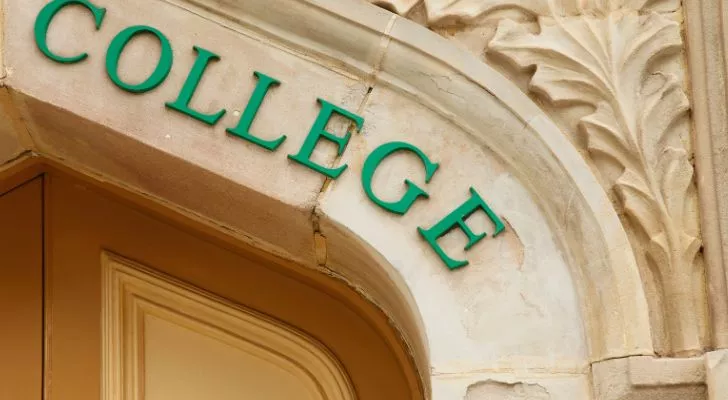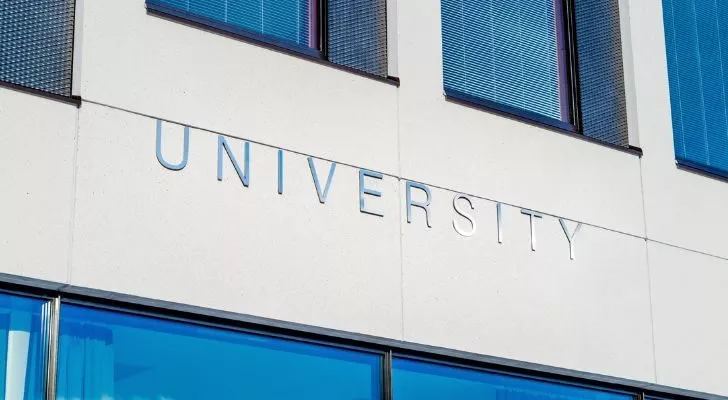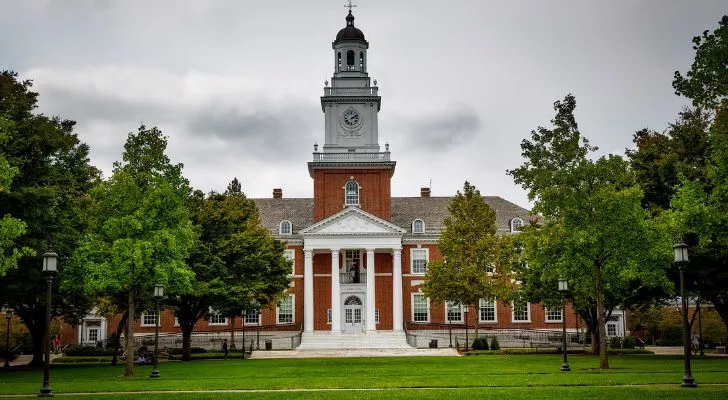Have you ever noticed how most people use university and college interchangeably? As higher institutions of learning, they share many similarities but technically aren’t identical.
From the degrees offered to the learning environment, quite a lot distinguishes one from the other.
If you’re looking to pursue an undergraduate degree, understanding how a university differs from a college can help make your decision of where to go easier.
But even if that’s not your intention, the following few sections will help you confidently use the correct term.
What is a college?

A college is an educational institution focused on undergraduate studies. It typically features a small campus, creating an intimate community of students and faculty members.
These institutions may also be more immersed in learning as opposed to research.
There are several types of colleges, including community, technical, or vocational colleges.
Technical and vocational colleges provide two-year courses in professional fields, helping students fine-tune their skills for a specific trade.
Community colleges also typically run two-year programs, offering certificates and associate degrees.
Colleges sometimes run specialized programs. But some, particularly liberal arts colleges, expose students to various subjects. This allows you to explore without narrowing down your studies immediately.
Although uncommon, some special colleges offer students bachelor’s degrees. But for some students, colleges are stepping stones to four-year universities, where they get their bachelor’s degree.
What is a university?

A University is a much larger educational institution where students can get undergraduate and graduate degrees.
These massive institutions of higher learning typically hold students in tens of thousands spread across diverse departments.
Universities bring students together with distinguished professors. They feature an active research department, often spending billions of dollars on research and development.
Larger universities may also be made up of smaller colleges. These smaller units are focused on a specific professional field, such as engineering or business.
How is a college different from a university?

While colleges and universities refer to institutions of higher learning, they differ in size, cost, academic programs, and even the degrees offered.
Universities typically boast large campuses and populations. For example, Texas A&M University has over 70,000 students.
However, not all universities are this large, as Princeton University has just 8,000 students. Nevertheless, most people would usually associate universities with more students.
The larger university population means there may also be a stiffer struggle for resources.
With more students fighting for limited spaces, some may miss out on desired classes as they tend to fill quickly. It’s also easy to feel lost in a university because of its size.
University students get more courses to choose from and have more resources available. Unfortunately, college students have limited study programs and get less diversity.
Surprisingly, this smaller size in colleges can be advantageous as students get more personalized teaching than in an average university.
Colleges stop at undergraduate degrees. Students here may finish with an associate degree, special certificates, or, at best, a bachelor’s degree.
Universities, on the other hand, offer undergraduate studies but also allow you to pursue master’s and doctorate degrees as well.
Then there’s the disparity in cost. Most community colleges cost only a fraction of the typical university. Plus, the programs there only run for two years, saving you extra.
How does a college become a university?

A college can transition into a university, but the process is tedious and may take several years. The institution needs to be granted a state charter and apply to the designated accreditation body for approval.
The college must have already built a solid reputation to improve its chances of becoming a university. An impressive alumni network is a great place to start.
It also needs essential resources, including personnel, classrooms, laboratories, and other necessary university buildings.
A population of at least 500 students per course is another crucial requirement.
The institution needs to have been operational for up to 10 years. Offering graduate programs and getting an endowment of up to $1 million are also necessary.
Although colleges and universities are higher educational institutions, they don’t offer the same kinds of degrees or have the same learning environment.
Colleges have smaller campuses and are generally more affordable.
Interestingly, a college can become a university, but it must first meet specific strict requirements, which takes a long time.


















